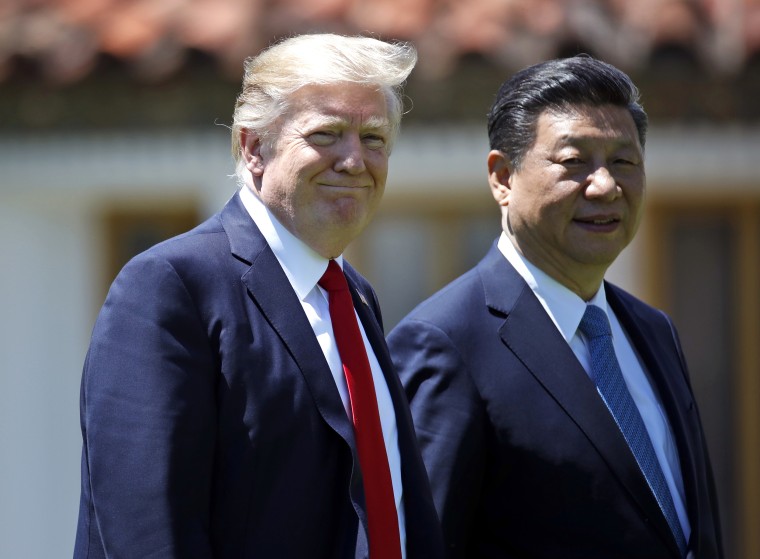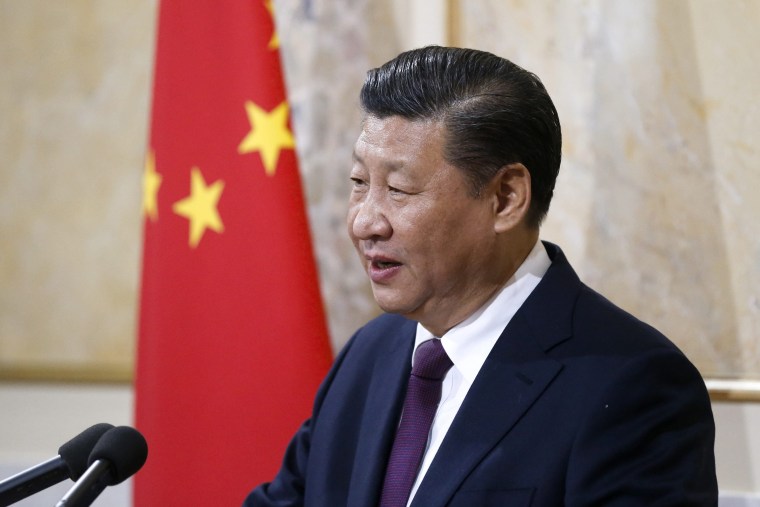Chinese officials have urged the United States to immediately halt its $1.42 billion of planned arms sales to Taiwan.
The comments, which came hours after the State Department announced the proposed sale Thursday, are the latest twist in Washington and Beijing's complex relationship since President Donald Trump took office.
"The Chinese government and Chinese people have every right to be outraged," China's Embassy to the U.S. said in a statement late Thursday, according to Reuters.

China sees self-governing Taiwan as a renegade, breakaway province. The U.S. does not officially recognize it as an independent state but remains its sole arms supplier.
The latest proposed sale comprises seven items, including anti-radiation missiles, torpedoes and components for SM-2 missiles, a U.S. official told The Associated Press on condition of anonymity.
The Chinese embassy said it was the "wrong decision" and sent a bad message to "Taiwan independence" forces.
Adding to the statement, Cui Tiankai, the Chinese ambassador to the U.S., told reporters: "Always we're opposed to such actions," referring to Washington selling arms to Taiwan.
"How can you promote peace and stability by selling arms?" he said. "This is a most ridiculous argument."
Such deals "will certainly undermine the mutual confidence between the two sides and runs counter to the spirit of the Mar-a-Lago summit," he added, referring to Trump's Florida resort where the U.S. leader met Chinese President Xi Jinping in April.
That meeting resulted in Trump calling Xi a "good man." And the U.S. president has sought China's help in dealing with the nuclear ambitions of North Korea.
The two men may meet on the sidelines of the G20 summit in Germany next week.
But Trump has previously caused friction in the relationship by taking the unprecedented step of speaking with Taiwanese President Tsai Ing-wen on the phone.
It was the first time a U.S. president or president-elect has had contact with a Taiwanese leader since before the U.S. cut off diplomatic relations with Taiwan in 1979.
Trump also railed against Chinese trade policies during his election campaign.
"We can't continue to allow China to rape our country," he told a rally in Indiana in May, 2016. "That's what they're doing. It's the greatest theft in the history of the world."
China objected strongly to the last U.S. arms sales to Taiwan in December 2015, but it did not notably set back U.S.-China relations.
However, relations across the Taiwan Strait have deteriorated since then, as Taiwan last year elected a leader from an independence-leaning party, Tsai Ing-wen. China has increased diplomatic pressure, cut off its contacts with the island's government and discouraged travel there by Chinese tourists.
Alexander Smith reported from London. Abigail Williams reported from Washington, D.C.
